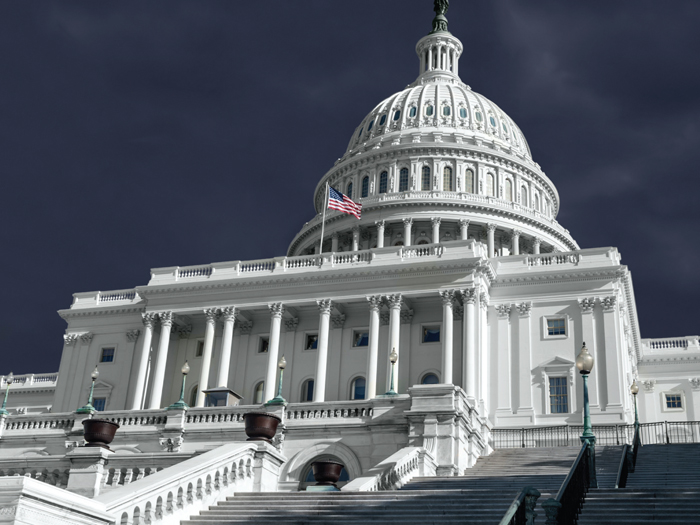Reinsurance
A Taxing Reinsurance Dispute

The U.S. economic recovery is building up a head of steam — a development noted with some envy in Europe where growth is, at best, still anemic. Nonetheless, there is still that pesky deficit to be tackled, which means that tax-raising proposals that never gained much traction before now can still be periodically brought out and dusted off.
Prime examples are bills H.R. 2054 and S. 991, introduced this summer, respectively, by Rep. Richard Neal, D-Mass., who serves on the House Ways and Means select revenue measures subcommittee, and Sen. Bob Menendez, D-N.J., a member of the Senate Finance Committee.
Following President Obama’s budget announcement in April, which raised the possibility of ending some tax breaks commonly enjoyed by international reinsurers doing business in the United States, the duo revived proposals to legislate against U.S.-based companies that claim tax deductions for reinsurance premiums paid to foreign affiliates free from U.S. tax law.
The measure, which has been launched on previous occasions without success, has been promoted this time around as closing an “unintended tax loophole;” one that costs ordinary U.S. taxpayers billions of dollars, as well as handing an unfair advantage to foreign-owned insurers serving the U.S. domestic market over their home-based competitors.
Proponents of the bills cited a $12 billion slice from the deficit over a period of 10 years as the prospective prize if they are pushed through.
Neal has mounted a formidable assembly of facts and figures to back up his argument, such as a steady increase in the amount of reinsurance ceded by insurers to offshore affiliates, from $4 billion in 1996 to $33 billion in 2008; much of the latter figure comprising nearly $21 billion to Bermuda affiliates and over $7 billion to Swiss affiliates.
Meanwhile, Menendez has attacked “the increasing trend of foreign insurance companies moving profits made in America offshore and sticking Americans with the bill,” which he describes as “incredibly troubling.”
CDII Bangs the Drum
The main support for the legislation has, unsurprisingly, come from The Coalition for a Domestic Insurance Industry (CDII) whose slogan is: “Seeking a level playing field for all insurance companies.” The CDII’s 13 U.S.-based members include such big hitters as W. R. Berkley Corp., Chubb, Berkshire Hathaway and Liberty Mutual. Berkley Corp.’s chairman and CEO, William R. Berkley, urged Congress back in May to waste no time in adopting the legislation.
“Congress never intended to give a preference to foreign-controlled insurers over their domestic competitors,” said Berkley. “Closing unintended loopholes to recover lost revenue is one of the best ways to offset the cost of needed tax reform.
“Closing this loophole, staunching the flow of capital overseas, and restoring competitiveness for this important domestic industry is a win for us all.”
Yet the forceful language has not yet attracted mass support for the cause.
As the CDII acknowledged, the legislation has been successfully blocked over several years by what it called “scare tactics” employed by the opposition “claiming that it will adversely affect pricing and capacity in the U.S. market.”
The Federal Insurance Office (FIO) in the U.S. Treasury, set up as a result of the Dodd-Frank Act, has also not been won over by the arguments that lie behind H.R. 2054 and S. 991. This fact was noted by Randi Cigelnik, general counsel at the Property and Casualty Insurers Association of America, when she spoke recently at an insurance conference in Bermuda.
“The domestic industry is split on the [taxation] issue and the FIO is neutral,” said Cigelnik. “Some believe that it will make it more difficult for non-reinsurers to meet the U.S. market’s demand for reinsurance.”
The legislation is also opposed by organizations that stress they are “no friend of the insurance industry” and can, therefore, judge impartially on the taxation issue, such as the Florida Consumer Action Network. Its executive director, Bill Newton, said the proposed legislation would impose “punitive” tax increases on many insurers that Florida residents rely on for hurricane cover.
Newton cited a study by Massachusetts economic consulting firm the Brattle Group on the economic impact of an earlier version of the Neal-Menendez bill. It found that ending the tax concession would result in a 20 percent decrease in the net supply of reinsurance in the United States. According to the study, the impact on Florida consumers would be an overall annual increase of more than $817 million in their insurance bills. The study saw homeowners’ insurance rates rising by 4 percent and a 13 percent hike in commercial insurance rates.
“By shifting the financial burden of rebuilding after a disaster onto already strained domestic insurers and their policyholders, this tariff would disrupt insurance markets while failing to raise revenue in any significant way,” Newton concluded.
The word “protectionism” has also been used, as in a commentary by the think tank R Street Institute. Senior Fellow R. J. Lehmann wrote of the proposal: “This is a protectionist measure that serves the interests of certain large domestic companies by discouraging foreign-based competitors from devoting their capital to U.S. risks.
“It also is simply bad policy, in that it would tend to concentrate U.S. risks within the United States, rather than allowing the global reinsurance system to spread them throughout the globe.”
Back to the Beggining
Brad Kading, president and executive director at the Association of Bermuda Insurers and Reinsurers, said that other consumer groups also oppose the bill, including the European Commission; the governments of the U.K., Germany and Switzerland; former U.S. trade ambassadors; and industry bodies including the Risk Management Society (RIMS).
“The proposal to close the tax loophole has been around for the past seven years and has been part of the president’s budget for the past three,” said Kading. “However, Congress is continually looking at new ways to raise taxes, so the issue hasn’t gone away — even though six insurance regulators and Florida business groups have ‘got the message’ and are opposed to the proposals.
“Indeed the opponents’ coalition has always been much broader based than that of the proponents,” he said.
“Back in 2007, the original proposal was supported by Berkley and Chubb, against which 50 letters of opposition were submitted. So the proponents made their case long before now. However, the Senate has decided that it will go back and begin with a blank sheet of paper in redesigning the tax code and is open to all potential methods of raising revenue.
“Everything is up for grabs,” Kading said, “and this bill might always get through as a part of wider tax-raising proposals. Dave Camp, [R-Mich.], chairman of the House Committee on Ways and Means, wants to have the tax bill ready by the fall. So, theoretically, there could be a floor vote following the Committee vote.”
The external affairs committee at RIMS is also working hard on the issue, as it believes the effects of the bill would be detrimental to members, said Carolyn Snow, the committee’s board liaison member and also director of risk management for health care company Humana.
In April, RIMS wrote to the House Ways and Means Committee’s International Tax Reform Working Group, expressing its disagreement with the administration’s proposed 2014 budget, which includes a proposal to eliminate the tax deduction, as outlined in H.R. 2054 and S. 991.
In the letter, RIMS President John Phelps said the budget proposal to eliminate the tax deduction “would have a chilling effect on the use of foreign reinsurance.”
“As a result,” he wrote, “the availability of coverage would be reduced and costs for consumers would increase significantly, particularly in urban areas subject to terrorism risk and areas prone to natural disasters.”
Snow added that the bill submitted to the Senate by Menendez has, so far, had a notable lack of success in attracting co-sponsors, while that submitted by Neal had gained only one.
“However,” she said, “the U.S. has a big budget deficit and the president has talked of the measure as part of the overall deficit reduction program. So it’s true that there is the potential for it to go through attached to another bill — although quite possibly there’s no more than an outside chance of it happening.
“Nonetheless, it might be regarded as one of the ways of ‘closing the gap’ without creating too much pain, particularly if the general public regards the tax measure as something that affects only corporations. It could, in reality, increase insurance premiums significantly, with household insurance among the classes affected where the insurer cedes reinsurance offshore,” she said.
Snow added that Bermuda-based companies are quietly campaigning against the proposed measure and there is some hope that it might “die a death” naturally, given the strength of the opposition expressed on sites such as www.keepinsurancecompetitive.com.
“One positive sign is that U.S. economic growth shows signs of picking up but there is some question as to how sustainable these signs of recovery are,” she said. “The housing market is showing signs of recovery — but still the deficit remains a major issue.”










